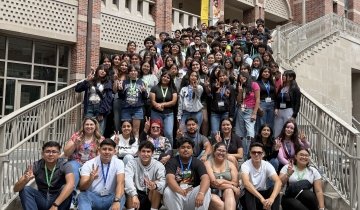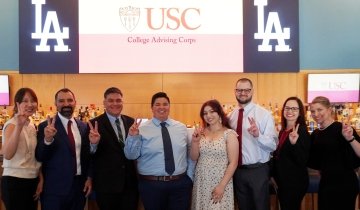Racism is much like a wound across your back. It can remain dormant and unnoticeable, covered and indistinguishable, becoming almost completely forgotten until awakened again like a deep cut underneath a sweltering hot shower. Suddenly we are reminded of its existence, the pain conjuring vivid memories of when the injury occurred in our past, and all we can do is concede to our foolishness for believing it had ever healed.
We were convinced, for the better half of the new millennium, that racism was receding into the dark depths of American history—just as my father was convinced after the Civil Rights Act was passed in 1964—only for us both to come to the disheartening revelation that progress is still nowhere near where it needs to be. With the arrival of this new presidential administration, the wound is now reopened and exposed, vulnerable to the terminal infection of white supremacy. However, this is no time to wallow in discouragement. It is simply time to listen.
People of color, and Black people specifically, have been the vanguard of social justice throughout American history, both inside and outside of the field of academia. Through grassroots organizing, social and political activism, and community empowerment initiatives, people of color have demonstrated their resiliency decade after decade, both contributing to and healing this country in the process. So why are people of color still being ignored, when we have proven to have the answers throughout every pivotal era in history?
The current state of our nation is a reflection of the deficiencies in our education system; racism is deeply embedded in both. People of color are still drastically underrepresented in colleges and universities across the country, and even more so in positions of political leadership. This is no accident. Our institutions have conditioned many of us to believe that knowledge only belongs to those in power. This elitist view privileges those who have access to these spaces, which often only requires being White in America. Thus, if all you do as a scholar is present at conferences (that are not even open to the public) and write articles for academic journals (that require an expensive subscription to read), then you are further perpetuating the idea that knowledge should only exist in predominantly White spaces. However, by engaging with communities of color, both formally and informally, scholars can collaboratively pursue more holistic strategies that are aimed to advance a new, “radical” vision for our education system that is inclusive and equitable to all.
As we observe the political pendulum swing sporadically in one direction with a wrecking ball of xenophobia and racist bigotry, we must remember that the gravity of reason will cause the pendulum to swing just as intensely the opposite way. And when it does, we need not look further than to our own communities of color for solutions. There are champions of change who have the needle and thread to sew our wound shut, and powerful voices waiting to be amplified. We just have to listen.




